PEER Research Experiences for Undergraduates (REU): freshwater science and policy in the human-dominated Tigris River Basin
PI: Christy Jo Geraci (The American University of Iraq, Sulaimani)
U.S. Partners: Ann Rypstra and David Berg (Miami University of Ohio)
Project Dates: August 2013 to January 2015
Project Overview
The PI and U.S. partners created a Research Experiences for Undergraduates (REU) program in freshwater science and policy in the Tigris River Basin. The REU was linked with a new curriculum and research opportunities for students at the American University of Iraq, Sulaimani (AUIS) about water resources and development. This program immersed undergraduates in science via inquiry-based learning. Students learned and taught about argument, scientific method, statistics, research, and scientific writing—all in the context of water resources. The training aimed to be broadly scientific and to push students to be able to formulate research questions, deploy the scientific method to seek answers, employ appropriate tools and techniques to collect data, use statistical methods and software to analyze data, approach these processes critically, place them in the larger contexts of politics and development, and, at the end, competently present their findings.
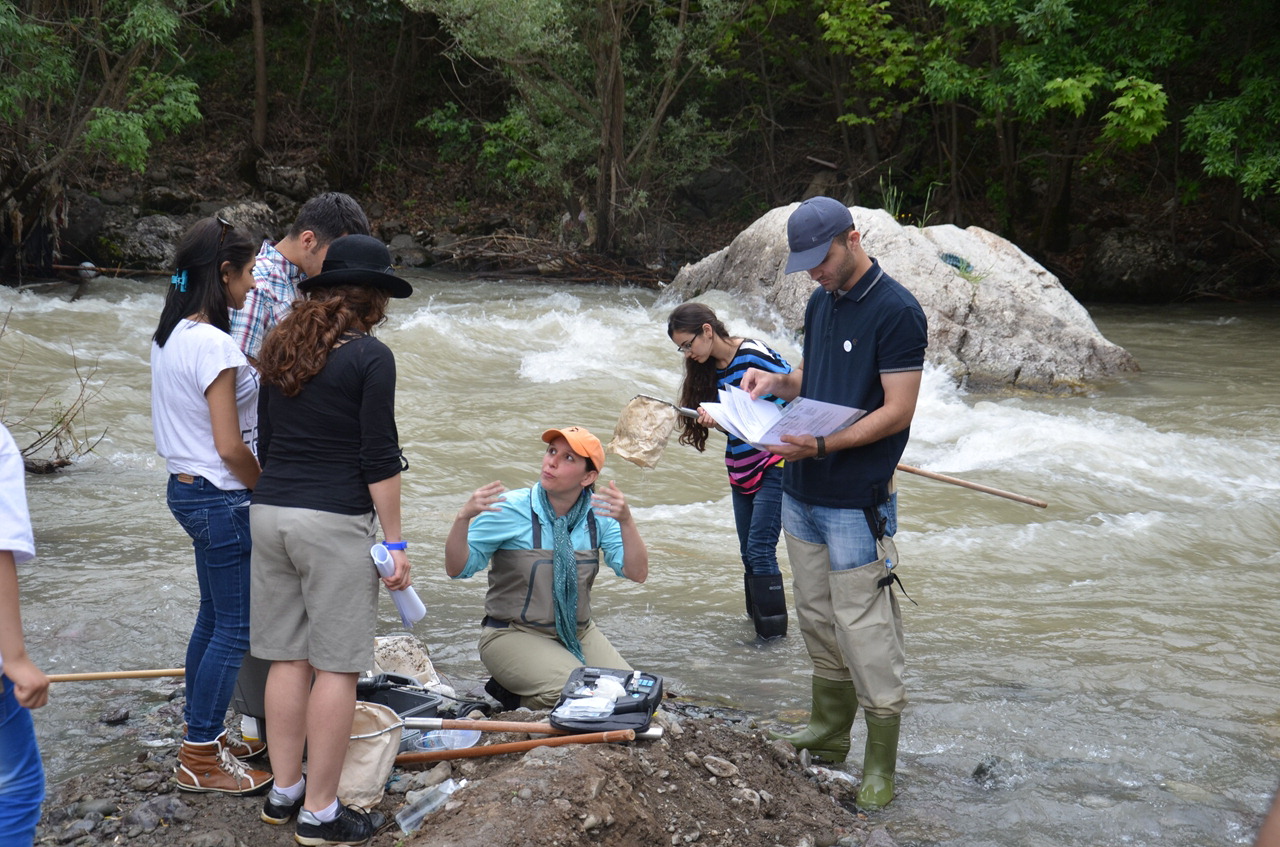
| 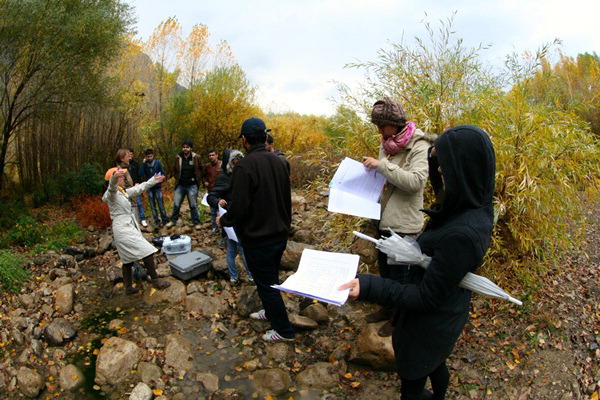
|
| Dr. Geraci and SCI 323 Freshwater Science students demonstrate water quality sampling techniques | The AUIS students went on an all-day field trip that included hands-on training in water quality monitoring (Photo courtesy Dr. Geraci). |
Final Summary of Project Activities
The learning community of 10 students at AUIS took two full-semester courses, Freshwater Science and Research/Technical Writing, as well as a two-day Freshwater Science Research Methods Workshop. Each of the 10 students enrolled in the Technical Writing and Freshwater Science courses worked on a research proposal on a topic of his or her choice, in addition to smaller assignments such as an ethics memo and synthesis and presentation of water quality data. Freshwater Science and another new course created by the PI under this project—Water Policy in Iraq—both addressed advanced topics, such as water science, use, policy and management in Iraq and other countries of the Middle East and North Africa. In these courses, students had the opportunity to do hands-on research and gain their first firm experience in being scientists and policy analysts. The Freshwater Science course prepared students for basic research by giving them laboratory and field experience, while the Water Policy in Iraq course gave them a foundation in policy research. Both courses pushed students to think critically about how the Tigris River basin is linked to regional development.
As part of the coursework, students took several field trips to local streams and rivers to practice techniques for biological assessment, including trips to the Lesser Zab River and one of its feeder streams, Sarchinar Stream, Zalm Stream, Mawat River, and Choman River near the new Halgurd-Sakaran National Park. During these field trips, the researchers and students collected fewer aquatic invertebrates than expected, which could reveal increasing pollution in these streams or the fact that the emergence patterns of aquatic insects are timed for later in the spring than originally expected. The final activity of the semester was a group field trip to the Choman - Rwanduz River Festival sponsored by NatureIraq. The festival was the kickoff event for a public outreach activity aimed at raising awareness of the value of conserving the Rawanduz River. PEER students presented posters to the public and gave hands- on demonstrations of water chemistry sampling and aquatic invertebrate identifications using portable microscopes purchased by AUIS.
The concept of the Learning Community is now being applied to other areas of study, and the ENG 203 course led to new methods of teaching being implemented in the International Studies capstone course taught by a team member. Students displayed their capstone projects for the first time to the broader AUIS community and defended their theses in an interactive question and answer session.
The PEER team also collaborated with NatureIraq's RiverWatch program during the spring semester. Students learned how to use their HACH colorimeter device and YSI water chemistry probe. The data they collected will contribute to the RiverWater public dataset available on their website.
In July 2014, three AUIS students successfully completed four weeks of training at the Miami University of Ohio, where they conducted research in ecology of human dominated landscape. During their U.S. visit, the AUIS students collected aquatic insects from the Mad River watershed in Ohio, completed morphological identifications of the specimens after receiving training on aquatic insect morphology and taxonomy. In the final two weeks of their visit, the students learned how to carry out DNA extraction, PCR amplification, and gel electrophoresis using specimens from the Ohio Mad River specimens.
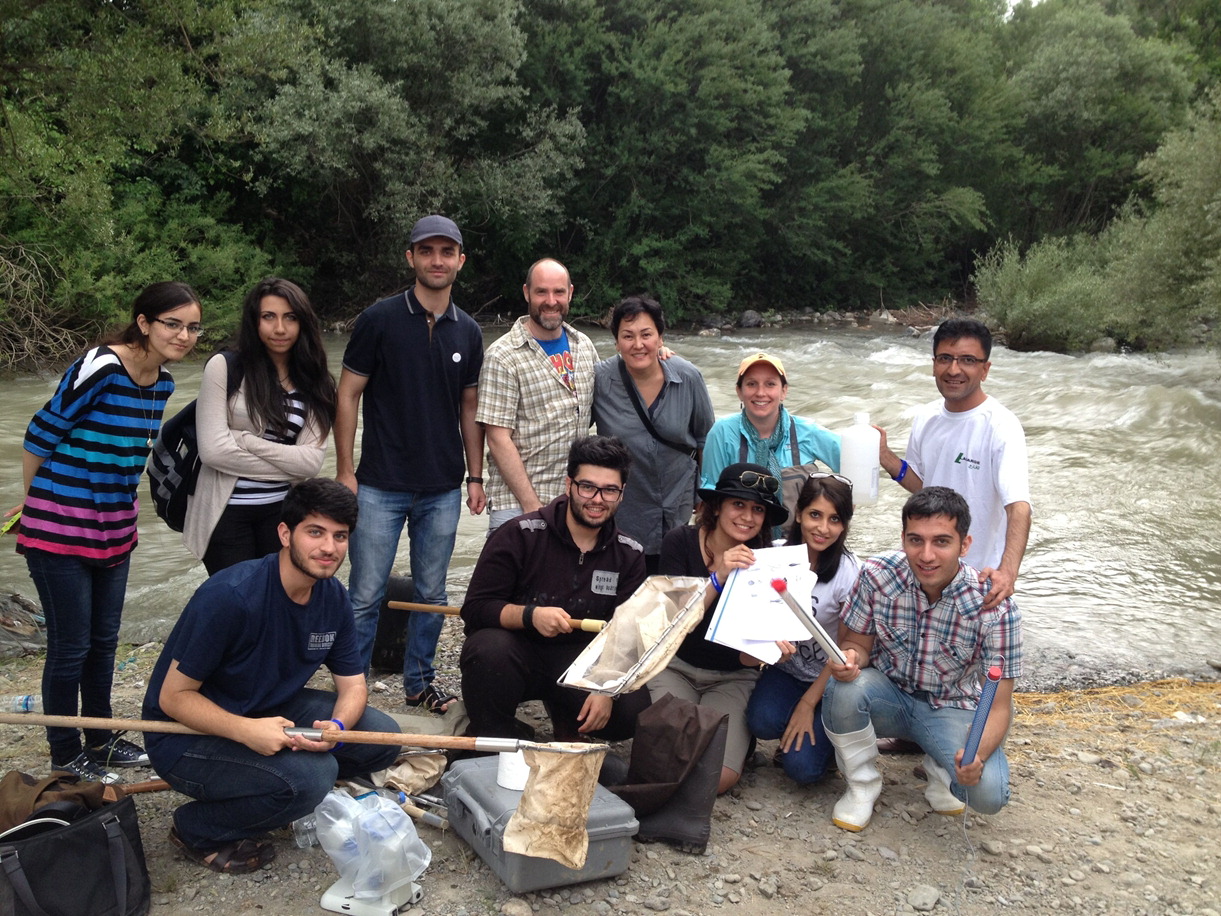 | 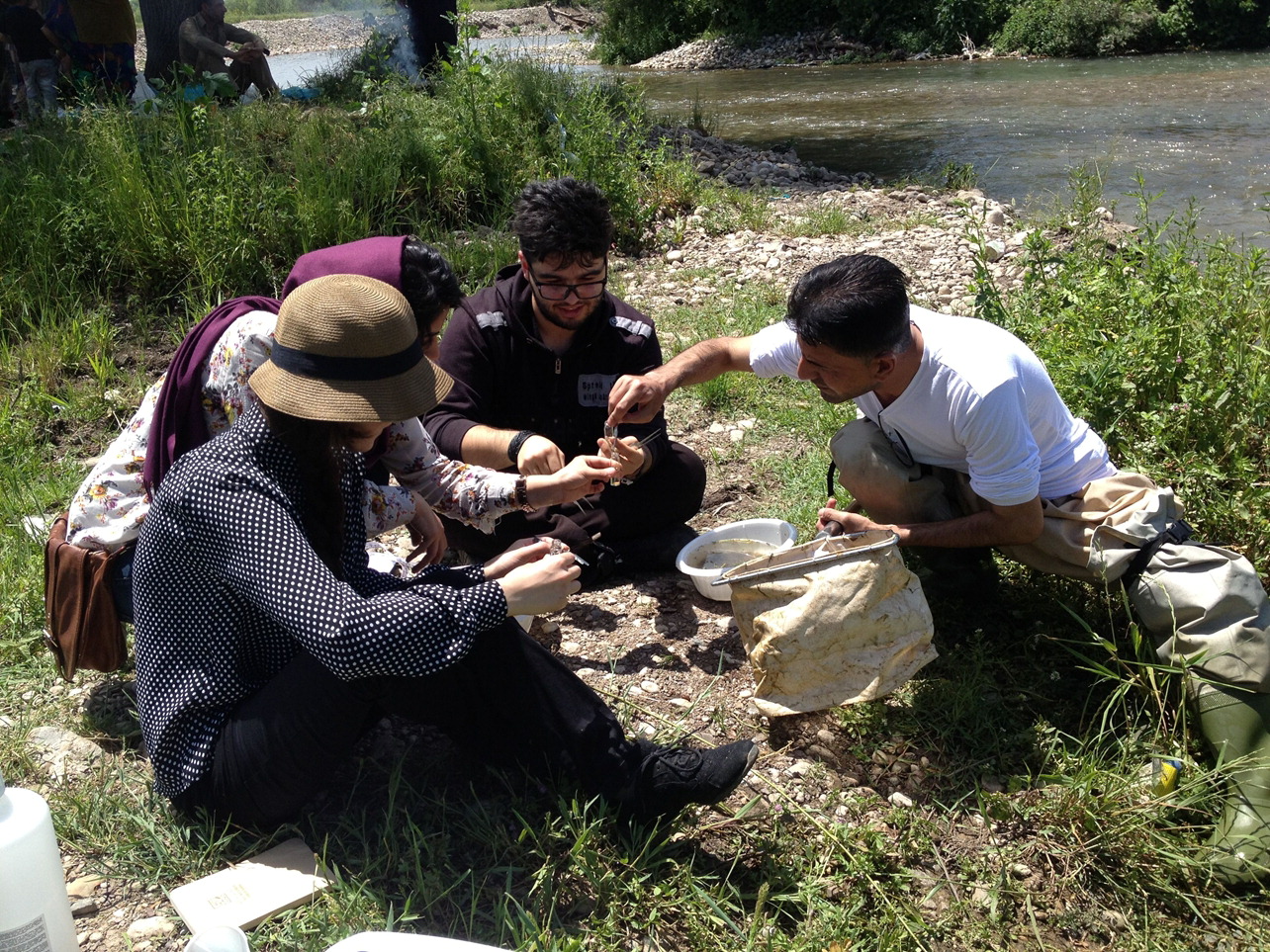 |
| AUIS students and faculty collecting aquatic invertebrates in the Rawanduz River (Photo courtesy Dr. Geraci). | Freshwater Science students collect aquatic macroninvertebates at Zalm Stream, May 2014 (Photo courtesy Dr. Geraci). |
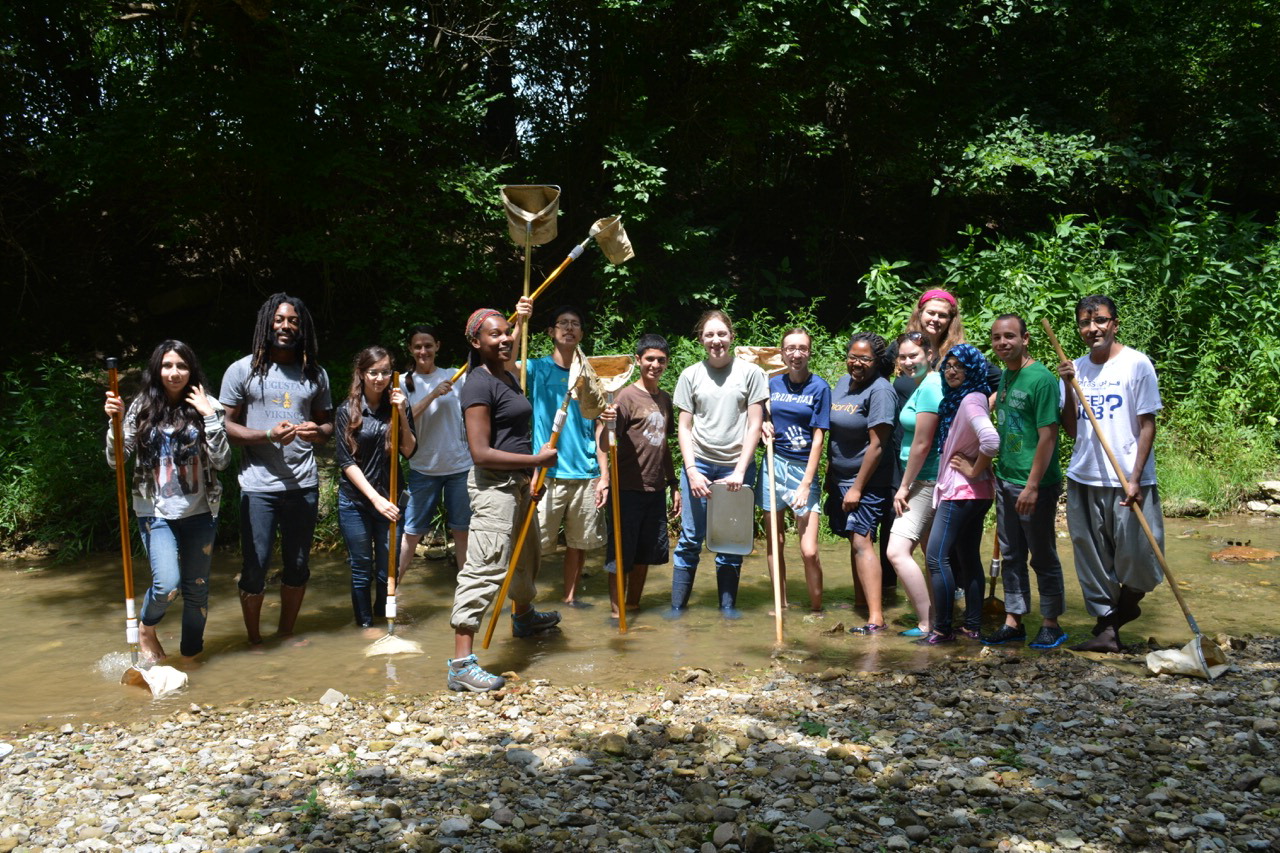 | 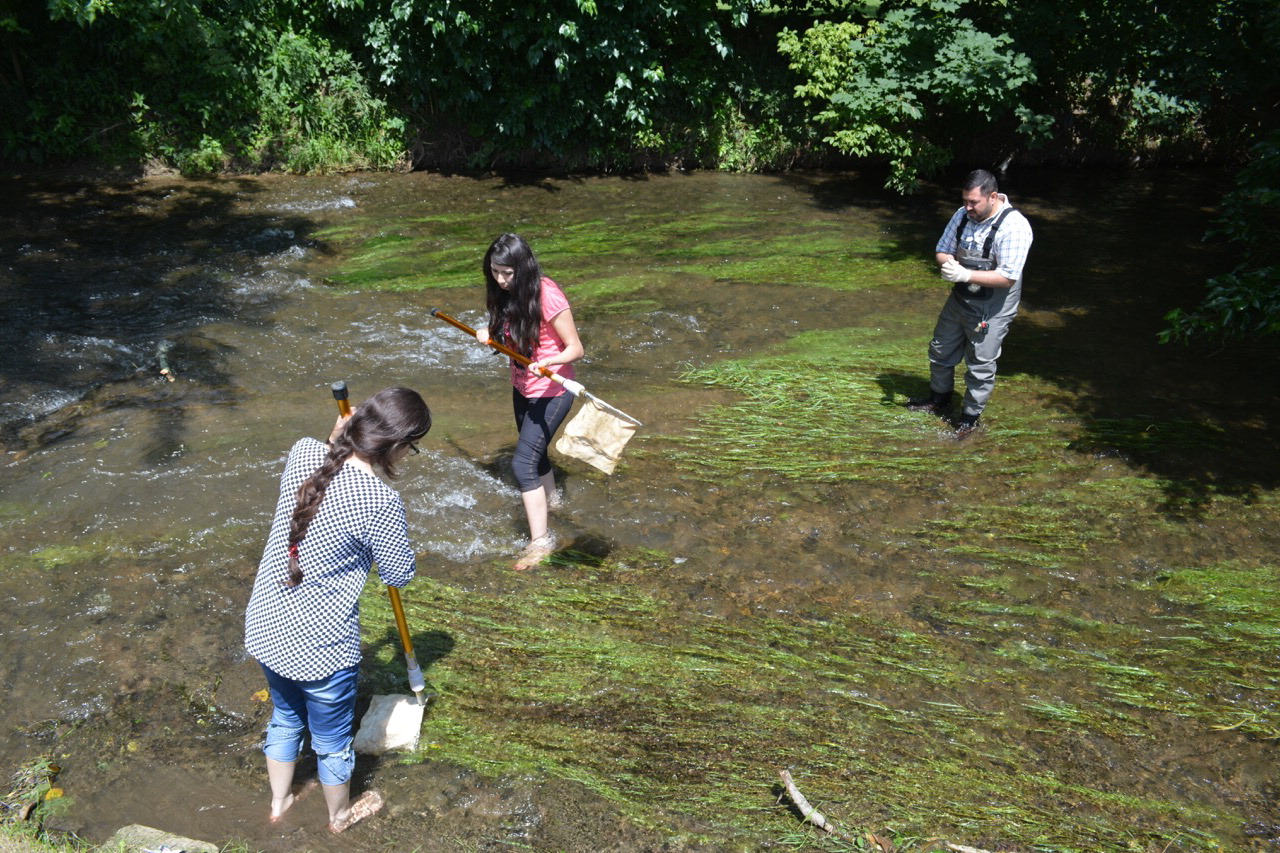 |
| (Photo courtesy Dr. Geraci). | (Photo courtesy Dr. Geraci). |
Back to PEER Cycle 2 Grant Recipients









